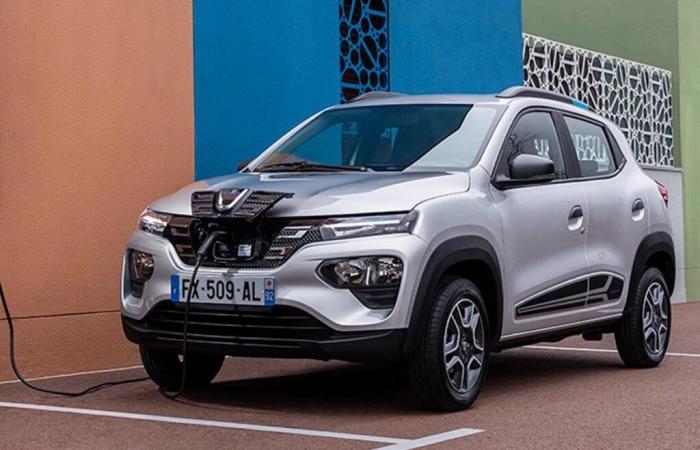Dacia is causing a sensation with a unique electric vehicle offer at €89/month. This ambitious bet places the Dacia Spring 2025 at the head of the market for economical electric vehicles. The car manufacturer continues to shake up the rules by making electric vehicles affordable for a wider range of customers.

The Revival of the Dacia Spring: Design and characteristics
The Dacia Spring 2025 has been redesigned to meet the expectations of modern drivers. A new, more assertive design characterizes this restyled edition, while retaining the compact and practical spirit of the city car. The lines are more dynamic, integrating new LED optics for better visibility and a touch of modernity.
The performance that changes everything in electric: this car pulverizes its official autonomy during tests
Technical performances also follow this evolution. The autonomy has been slightly improved, going to approximately 230 km in urban cycle thanks to an optimized battery and revised energy management. In terms of engine, the Spring retains a modest but sufficient electric motor for urban and peri-urban travel, allowing smooth and economical driving.

Accessibility above all: Unbeatable price and profitability
Dacia hits hard with a starting price of €89/monthwhich makes it the most accessible electric city car on the European market. Compared to other electric vehicles in its category, the Spring 2025 maintains a significant lead in terms of price, thus offering easier access to electric mobility for low-income households.
This pricing strategy, which breaks the codes of the sector, allows many consumers to take the step towards electricity, while offering reduced usage costs. The minimal maintenance of an electric motor and the free (or low cost) of charging at home or at public terminals help to make the Spring a profitable solution in the medium term.

The challenges and perspectives of Dacia Spring 2025: A transition towards greener mobility
The Dacia Spring 2025 is fully part of the energy transition advocated by Europe. By offering a low-cost electric vehicle, Dacia is committed to democratizing access to more ecological mobility solutions. This offer responds to the current challenges of reduction of CO2 emissions and raising awareness of the environmental impact of transport.
Electric cars are not for everyone”, BMW defends diesel and prepares a major innovation for these engines in 2025
For many households, the switch to electric remains conditioned by the cost of acquisition. Spring 2025 intends to remove this barrier with an attractive price. This could mark a turning point for the mass adoption of electric vehicles in economic segments, contributing to a substantial reduction in polluting emissions in urban areas.

Future challenges: Competition and technological evolution
The Dacia Spring 2025, however, faces ever-stronger competition. New players in the electric city car market could offer alternatives, with better ranges or advanced technologies. To stay ahead of the curve, Dacia must continue its innovation efforts, particularly in terms of fast charging and increased autonomy.
The question of charging infrastructure is also crucial. The Dacia Spring 2025 relies on fast charging, but the network of public terminals still needs to keep pace with sales of electric vehicles. A coordinated infrastructure development and collaboration between private and public actors will be essential to guarantee the long-term success of this city.
Opinions and forecasts: The future of the Dacia Spring on the market
Experts agree that the Dacia Spring 2025 has the potential to remain one of the benchmarks in the economical electric vehicle segment. Her unbeatable value for money and its accessible positioning give it a solid base of loyal customers, but the challenges of autonomy and infrastructure could be decisive.
In conclusion, the Dacia Spring 2025 promises to maintain its leading position among economical electric city cars while remaining a symbol of Dacia’s ambition to democratize electric vehicles.






